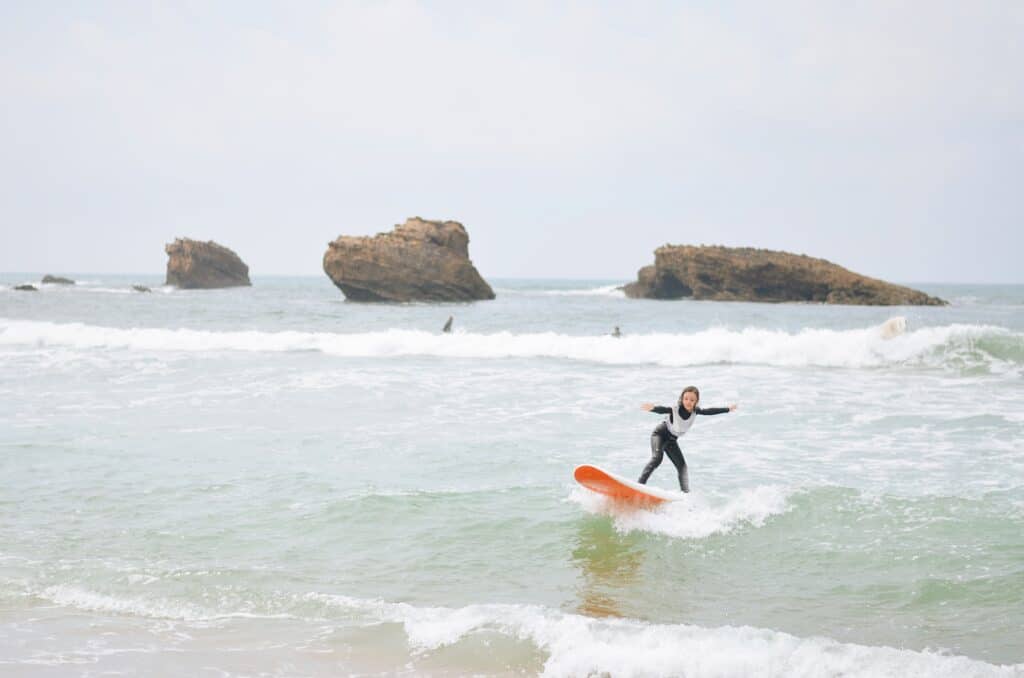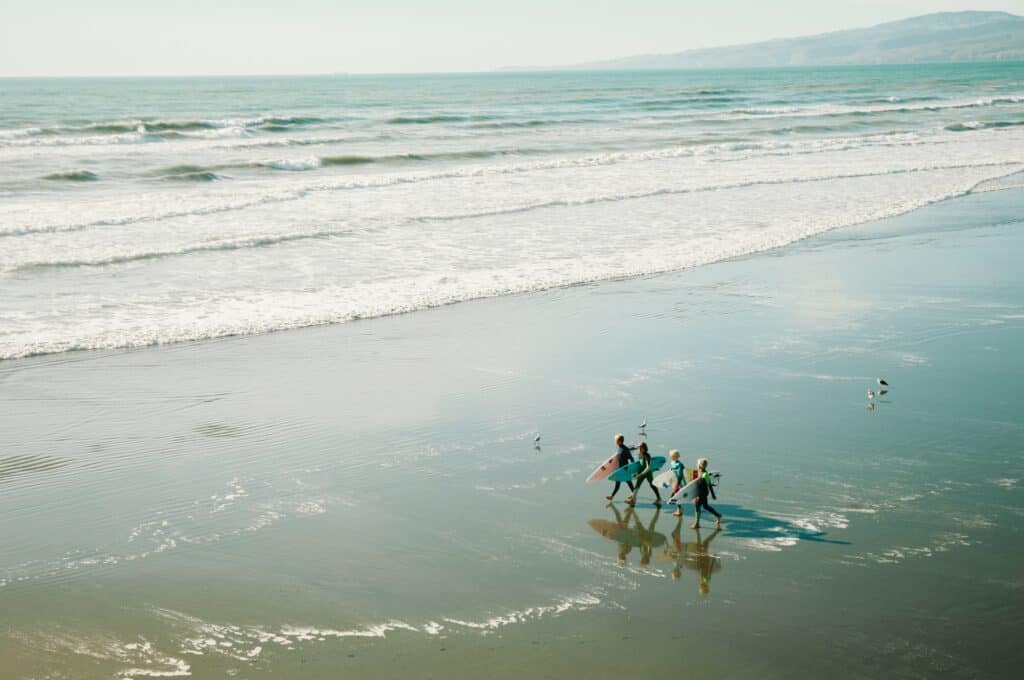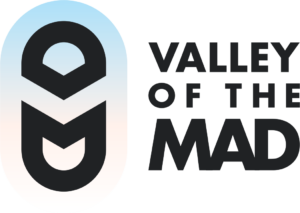Surf therapy is a form of alternative therapy that involves using the ocean for therapeutic purposes. It is a relatively new concept, but many therapists find it useful for treating various conditions, including PTSD, depression, anxiety, and substance abuse. The ocean provides an environment that is free of distractions, making it easier to focus on healing. Many patients also report feeling calmer after spending time in the water.

Benefits of a Surf Therapy Program
Mindfulness is an ancient practice that originated in India thousands of years ago. It involves paying attention to what you’re doing right now instead of focusing on your problems or worries. Mindfulness teaches us to appreciate the present moment and not worry about the future or regret the past. It also helps us to accept our current situation and move forward.
Surfers get an adrenaline rush when they ride waves. Adrenaline is released during exercise and helps us focus and concentrate. It also gives you energy and boosts your mood. When we surf, our body releases endorphins, chemicals that give us feelings of happiness and well-being. Endorphins help reduce pain and stress, making surfing a great alternative to other forms of relaxation.
Relief For Insomnia – This water sport is so challenging and exhausting that it will leave you feeling wiped out. This results in improved sleep and possibly eliminating insomnia. Self-Sufficiency – Surfing lessons teach the individual how they can survive alone in deep waters. Therefore, this learned skill transfers to other aspects of life and produces a sense of self-sufficiency.
Surfing may be a great activity for many mental health conditions and especially for those dealing with depression. Research shows that surfing helps reduce stress levels and anxiety. It also improves moods and increases feelings of happiness. Surfing can help you get rid of your negative thoughts and emotions. It can help you feel happier and calmer.
Non-pharmaceutical therapy. The therapy does not involve any medications and is free from the adverse effects that come with medication based therapies. Holistic. The therapy is holistic and promotes mental, psychological, and spiritual wellbeing as well as providing a huge increase in confidence. A holistic approach is far more effective compared to therapies which are non-integrated and costlier.

Why it Works
Adventure therapy is an alternative treatment for mental health issues. It involves going out into nature and doing activities like surfing, hike therapy, rock climbing, kayaking, etc. Studies show that it is especially useful for treating anxiety and depression. Some research suggests that it may also help with other conditions such as ADHD, bipolar disorder, and post traumatic stress disorder.
Adolescents and adults are always connected to technology. They spend most of their time using devices like smartphones and tablets. They also spend a lot of time surfing the internet and watching videos online. Surfing Therapy is a form of psychotherapy that allows them to disconnect from technology and connect with nature. It is a great way to help them deal with stress and anxiety. It is a non-traditional approach to helping people who might not respond well to traditional treatments.
Recreational therapy is a type of psychotherapy that helps individuals recover from mental illness through various activities. These activities may include sports, arts, music, dance, drama, crafts, games, hiking, nature walks, gardening, cooking, reading, writing, drawing, painting, meditation, yoga, swimming, dancing, playing an instrument, singing, listening to music, etc. Recreational therapy is often used to help patients deal with stress, anxiety, depression, anger, grief, loneliness, boredom, fear, guilt, shame, self-esteem, sexual problems, relationship issues, substance abuse, eating disorders, and other psychological problems.

Why Surf Therapy for Addiction Treatment?
Surfing is an activity that helps people recover from alcoholism and drug abuse. When you surf, you’re forced to confront your emotions. You have to deal with the waves of emotion that come at you while you’re riding them. It’s like going through rehab—you have to get out of your comfort zone and face all the emotions that you’ve been avoiding since you started drinking or using drugs. Surfing also teaches you to think differently about yourself. You have to learn to trust yourself again after years of not trusting yourself.
The Psychological Power of Awe
Awe comes from the Latin word “aduva” meaning “to admire”. It is an emotion that is experienced when we see something large or new. When we experience awe, our brains release oxytocin, a hormone that helps us feel connected to others and to nature. We also become more generous and compassionate towards other people. Awe can inspire us to help others. It can also help us appreciate the beauty around us.
According to the researchers, the feelings of awe and wonder lead to a greater sense of empathy and compassion, encouraging people to act more kindly toward others and to help them when possible. These feelings also encourage people to put themselves out there and try new things, which could lead to more opportunities to meet new people and expand their social networks.
Focus. Surfers need to concentrate on what they are doing at all times. They must stay focused as they ride the waves. This means they are less likely to think about anything else. Being out in nature helps them to feel relaxed and happy. So surfing is an excellent form of stress relief.
Surfers can burn about 240 calories in an hour. That means surfing burns less energy than running at 5 miles per hour. Surfers get the same physical health benefits as runners, like improved cardiovascular health and lower blood pressure. But unlike runners, surfers don’t need special equipment. You just need a board and a place to ride waves. Surfing is a great workout because you’re not using your legs to move forward. Instead, you’re moving through the water.
Exercise improves your mood, increases your brainpower, and helps you deal with stress. Dopamine is released during physical activity, making it an effective treatment for depression and other mental health issues. Exercise also reduces cravings for drugs and alcohol.
Taking up surfing is an excellent way to get your mind out of the rut you may be stuck in. Surfing allows you to relax and enjoy yourself while at the same time getting exercise. You will also meet new friends and make new connections. There are many different types of surf therapy available. Some of them include:
* Mindfulness – A type of meditation that focuses on the present moment.
* Yoga – A series of exercises designed to help you relax and relieve stress.
There are many different types of treatments available for mental health issues. Some of them are very expensive, others are free. There are also different ways to treat each condition. For example, there are medications that help with depression, while other treatments focus on getting patients out of bed and moving around.
Surf Therapy is an evidence-based approach to treating anxiety, depression, stress, and other mental health issues. It is a low-cost, non-invasive, safe, and effective method of improving mood and reducing symptoms of mental illness. Surf Therapy involves surfing consistently, usually at least once per week. Research shows that surfing improves mood and reduces symptoms of mental illness.
Look for Surf Therapy Programs near you.
Closest to Valley of the Mad is The Wave Project. Their surf therapy program offers young people aged 8 to 21 the opportunity to participate in a specialised surf therapy session once a week for six weeks. Each young person is paired with one of our volunteer surf instructors and receives one-to-one support appropriate to their needs for the duration of the course. They support children and young people who experience various physical and mental health conditions, social deprivation or social isolation. They also have a positive impact on physical therapy with their adaptive surfing sessions.



